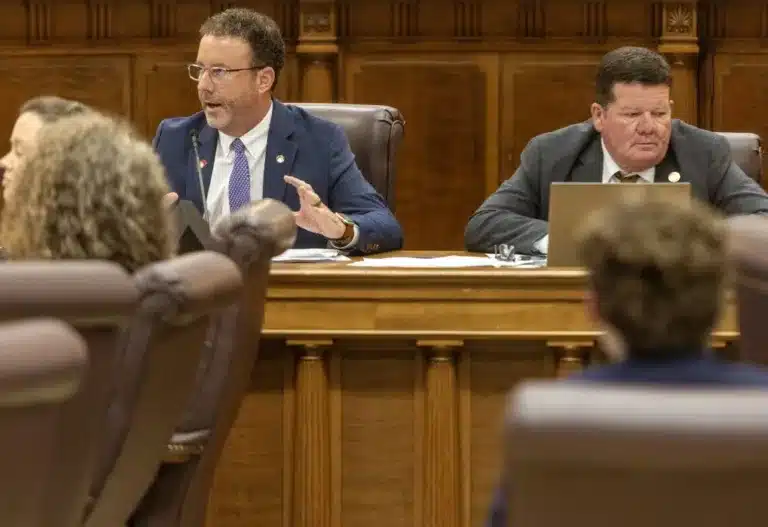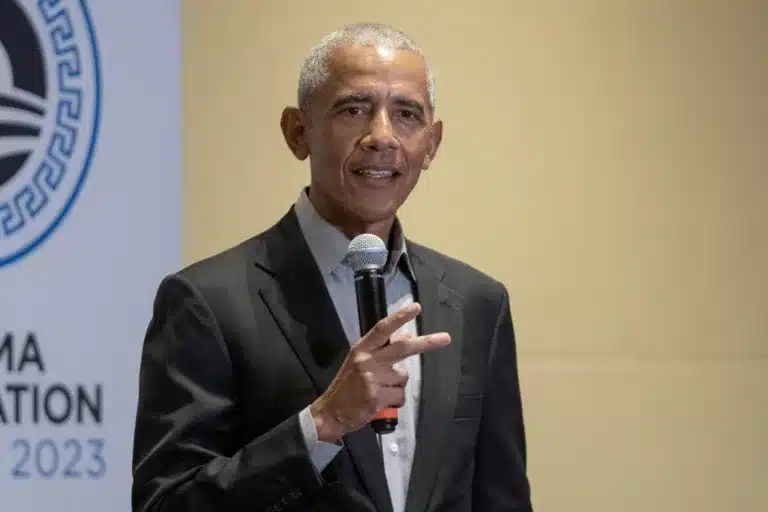A committee of legislators and state leaders convened at the Capitol this week to discuss mental health issues facing young Mississippians.
School and health officials cited a scarcity of mental health professionals for K-12 and college students in Mississippi as a major issue.
Sen. Nicole Boyd, a Republican from Oxford who sponsored the bill that created the committee, said she was inspired in part by the success of the Senate Study Group on Women, Children and Families, which gave lawmakers the opportunity to study a complex topic before making legislative recommendations.
She said she expects the task force to produce legislation and provide an opportunity for state legislators and mental health leaders to connect with one another.
“We have networks that can solve a lot of these issues and professionals that can solve a lot of these issues if we pull them together and resource (them) properly,” she said.
The committee is chaired by Sen. David Parker, R-Olive Branch and chair of Senate Accountability, Efficiency, Transparency, and House Education Chair Rep. Rob Roberson, R-Starkville. It includes legislators, state officials, mental health and education professionals and one student. Roberson was not present for the meeting.
The first task force meeting consisted of presentations from state government and hospital officials with expertise in mental health and education.
Nonprofit and other experts will appear at upcoming meetings, according to Roberson.
Task force members paid close attention to the connections between Community Mental Health Centers and schools. The regional centers, which are certified by the Department of Mental Health but operate under the supervision of counties, must offer their services to public school districts. Services include intake and risk assessments, case management, day treatment, crisis support and parent education.
While most school districts utilize the centers, some contract with private providers and several do not use either.
“Our community mental health centers are a great resource across the state, and what we’re seeing is that school districts and our community colleges and universities in some places are not networked up,” said Boyd, who chairs the Senate Universities and Colleges committee.
She said she aims to strengthen the centers’ connections to schools.
Some task force members also indicated that they would like to see more mental health professionals – and staff trained to notice signs of mental health challenges – in schools.
Mississippi’s State Superintendent of Education Lance Evans said that the counselor to student ratio in Mississippi is 400 to one.
“I’m a little embarrassed to even say the number,” he said.
Wendy Bailey, executive director of the Mississippi Department of Mental Health, said there are 519 school therapists employed in the state.
“We easily need to double that,” she said.
There were 1,038 operating public elementary and secondary schools in Mississippi for the 2022-2023 school year, according to the National Center for Education Statistics.
Dr. Sara Gleason, assistant vice chancellor for clinical affairs at University of Mississippi Medical Center, shared data showing that Mississippi ranks 42nd in the nation for access to mental health providers for adults and children.
” data-medium-file=”https://i0.wp.com/mississippitoday.org/wp-content/uploads/2024/07/3X0A4321-scaled.jpg?fit=336%2C228&ssl=1″ data-large-file=”https://i0.wp.com/mississippitoday.org/wp-content/uploads/2024/07/3X0A4321-scaled.jpg?fit=780%2C530&ssl=1″ tabindex=”0″ role=”button” src=”https://i0.wp.com/mississippitoday.org/wp-content/uploads/2024/07/3X0A4321.jpg?resize=780%2C530&ssl=1″ alt class=”wp-image-1121968″ srcset=”https://i0.wp.com/mississippitoday.org/wp-content/uploads/2024/07/3X0A4321-scaled.jpg?resize=1200%2C815&ssl=1 1200w, https://i0.wp.com/mississippitoday.org/wp-content/uploads/2024/07/3X0A4321-scaled.jpg?resize=336%2C228&ssl=1 336w, https://i0.wp.com/mississippitoday.org/wp-content/uploads/2024/07/3X0A4321-scaled.jpg?resize=768%2C521&ssl=1 768w, https://i0.wp.com/mississippitoday.org/wp-content/uploads/2024/07/3X0A4321-scaled.jpg?resize=1536%2C1043&ssl=1 1536w, https://i0.wp.com/mississippitoday.org/wp-content/uploads/2024/07/3X0A4321-scaled.jpg?resize=2048%2C1391&ssl=1 2048w, https://i0.wp.com/mississippitoday.org/wp-content/uploads/2024/07/3X0A4321-scaled.jpg?resize=1024%2C695&ssl=1 1024w, https://i0.wp.com/mississippitoday.org/wp-content/uploads/2024/07/3X0A4321-scaled.jpg?resize=1568%2C1065&ssl=1 1568w, https://i0.wp.com/mississippitoday.org/wp-content/uploads/2024/07/3X0A4321-scaled.jpg?resize=2000%2C1358&ssl=1 2000w, https://i0.wp.com/mississippitoday.org/wp-content/uploads/2024/07/3X0A4321-scaled.jpg?resize=400%2C272&ssl=1 400w, https://i0.wp.com/mississippitoday.org/wp-content/uploads/2024/07/3X0A4321-scaled.jpg?resize=706%2C479&ssl=1 706w, https://i0.wp.com/mississippitoday.org/wp-content/uploads/2024/07/3X0A4321-scaled.jpg?w=2340&ssl=1 2340w, https://i0.wp.com/mississippitoday.org/wp-content/uploads/2024/07/3X0A4321-1200×815.jpg?w=370&ssl=1 370w” sizes=”(max-width: 780px) 100vw, 780px” data-recalc-dims=”1″>
She said that there are 15 licensed child and adolescent psychiatrists with a primary practice in Mississippi.
Staffing shortages were cited as one of the primary limiting factors in ensuring that students receive proper mental health care.
“Whatever recommendations you make,” Bailey warned the task force, “if there’s not a workforce to implement them, it’s not going to work.
…There is a behavioral health workforce shortage in the state of Mississippi.”
Task force members also asked about limiting the use of cell phones in secondary schools, which several presenters said can negatively impact students’ mental health.
Evans said that though he expects pushback on a school cell phone ban, he “definitely” thinks the task force should look into it.
The committee tasked Evans with gathering information on cell phone policies for each school district across the state. He noted while much attention has been placed on Marshall County’s cell phone ban, it isn’t the only school district with such a policy.
The task force plans to reconvene Aug. 7 and is required to make recommendations to the Legislature by Oct. 1.
This article first appeared on Mississippi Today and is republished here under a Creative Commons license.
Read original article by clicking here.















